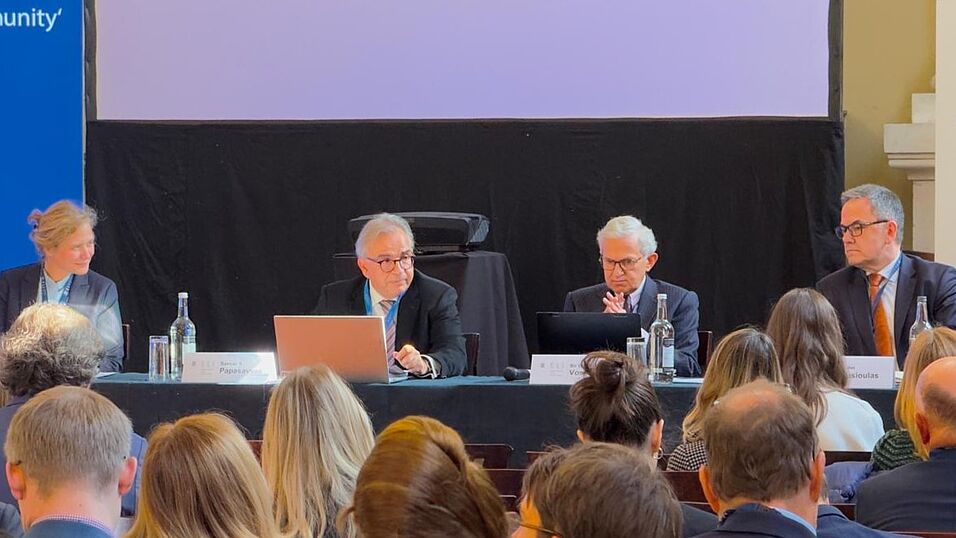With Savvas S Papasavvas (Vice-President, General Court of the European Union) as chair, the panel considered the impact of artificial intelligence (AI) and automated decision-making (ADM) systems on citizens' fundamental rights, particularly in relation to Articles 6 and 8 of the European Convention on Human Rights, which protect the right to a fair hearing and the respect for private and family life. Experts provided insights into the regulatory challenges and safeguards necessary to protect individual rights in an increasingly digital world, emphasising the significance of this topic in the current days.
While highlighting its potential, Sir Geoffrey Vos (ELI Vice-President; Judge; Master of the Rolls and the Head of Civil Justice in England and Wales) cautioned that advancements in AI might soon outpace human insights, posing risks to fundamental rights. Sir Vos argued that unchecked AI in legal and other sectors could undermine fairness and accountability. In his words ‘I believe that AI at the new levels it is reaching and will pose greater threats to our fundamental rights than many would like to acknowledge.’
Marion Ho-Dac (Professor, University of Artois) emphasised the importance of technical standards in AI to protect fundamental rights, noting that AI’s influence on daily decisions makes traditional safety measures inadequate. Her perspective was that AI standards would account for rights risks. She called on organisations to build safe, ethical systems. Ho-Dac suggested the use of the Fundamental Rights Impact Assessment (FRIA) to map and reduce AI’s risks, with guidance from frameworks like the UN and OECD, aligning with the EU’s AI Act to improve data quality and prevent discrimination.
John Tasioulas (Director, Institute for Ethics in AI, University of Oxford) argued that while human rights are essential, they are not a comprehensive framework for AI regulation. He stressed the importance of adapting existing human rights to the digital context, rather than creating a new regulatory foundation stating that ‘it is really important we don't put all the pressure on fundamental rights to be a comprehensive regulatory framework for AI’. Tasioulas went on to explore the theoretical basis for a possible right to human decision-making in the age of AI. See outline of contribution here.
Yordanka Ivanova (Legal and Policy Officer, DG CNECT, European Commission) noted, among other things, the challenges posed by AI in security, democracy and our daily lives, having underlined the importance of the AI Act.

